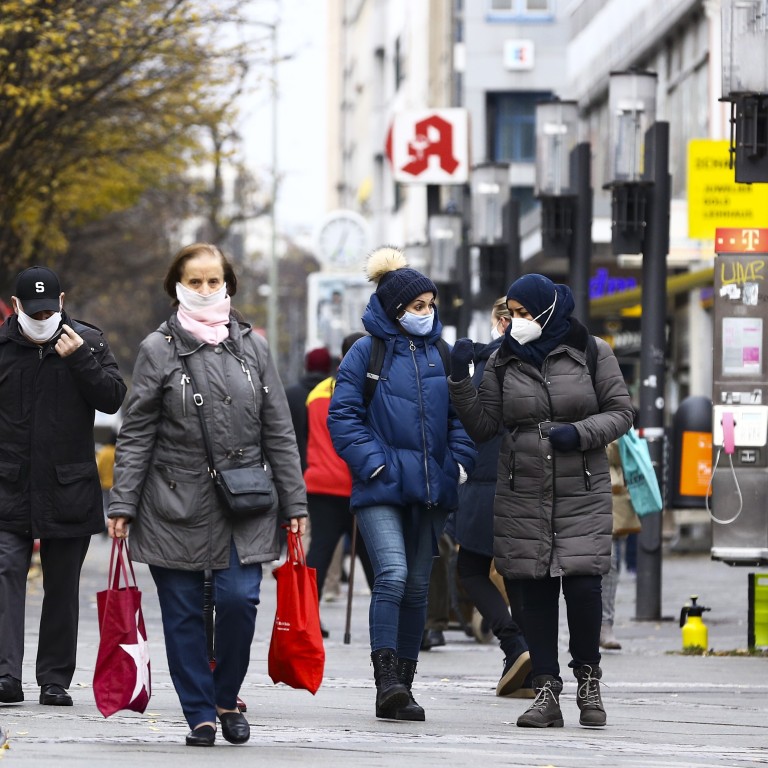
Compulsory face masks helped cut German Covid-19 infections by almost 50 per cent, study finds
- Study concludes masks are one of the most cost-effective ways to fight the disease with a cost that is ‘close to zero’ compared with other measures
- Study looked at data from over 400 municipal districts and found that some cities saw infections fall by up 75pc within 20 days
Face masks helped reduce the number of new Covid-19 infections in Germany by around 47 per cent 20 days after they became mandatory, according to a new study.
The researchers said masks are a cost-effective means to combat the coronavirus because the “economic costs are close to zero compared to other public health measures,” including closures of restaurants and schools, gathering bans, social distancing rules and quarantine.
The study compared data from 401 German municipal districts that made mask-wearing compulsory at different times.
While mask wearing has been widely accepted in some parts of the world such as east Asia, in others many remain sceptical about the benefits and governments have been unsure whether to make them compulsory.
Germany questions need for extra Covid-19 test for China flights
The World Health Organization on Wednesday tightened guidelines to advise people in health facilities and poorly ventilated indoor areas to wear masks when Covid-19 is known or suspected to be spreading.
The virus has infected nearly 66 million people worldwide and killed more than 1.5 million, with the United States, India and Brazil hardest hit. In Germany there have been more than 1.5 million Covid-19 cases and over 18,500 deaths.
On Friday US president-elect Joe Biden urged Americans to mask up for 100 days, which he said will lead to “a significant reduction” in Covid-19 transmission.
In the German study, published in the Proceedings of the National Academy of Sciences of the United States of America on Thursday, researchers found that mandatory mask wearing cut the number of new cases by between 15 and 75 per cent over 20 days. The most dramatic drops in infection rates were seen in the country’s largest cities.

01:30
Panda plush toys knock back Corona beers as German restaurant bears Covid-19 ‘panda-mic’ lockdown
They concluded that face masks reduce the daily growth rate of reported infections by around 47 per cent.
The eastern German city of Jena, the first in the country to make wearing a face mask mandatory in public in April, saw a drop in new cases of around 75 per cent after 20 days.
“Put simply, if the control region observes 100 new infections over a period of 20 days, the mask region observes only 25 cases,” said the researchers. “This drop is greatest, by more than 90 per cent, for the age group [of] 60 and above.”
However, since mask regulations in German districts do not specify how the face must be covered, the researchers were not able to identify differential effects.
Coronavirus: Germany told to brace for 4-5 months of ‘lockdown light’
Six other municipal districts in Germany made masks compulsory before their respective federal states did.
Eventually, all federal states in the country imposed the policy between April 20 and 29.
The study also showed online searches for buying face masks peaked on April 22, when it was announced that they would become compulsory in all states.

